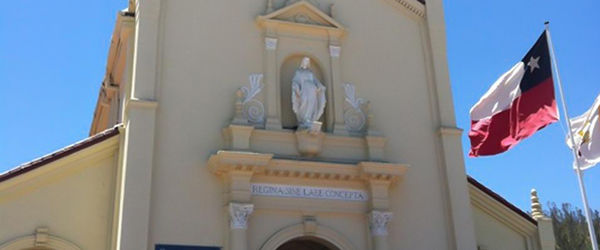A budget is more than a spending plan. As we say in this new statement, the budget raises “profound moral questions about who we are as a society, how we view our future and whether … we can look beyond our own self-interest to the interest of the larger society.” Bishops are pastors of souls, not politicians. But we have a mandate from Jesus Christ — to proclaim his Gospel for the salvation of the world. And Catholic social teaching is vital to the good news we bring to our society. In Catholic teaching, every person is sacred and endowed with God-given dignity and rights. We believe God created the good things of this earth — all its resources and opportunities — to be shared by everyone. Politics, as we see it, is a noble calling. It seeks the common good and justice for every individual, especially the poor and most vulnerable. As pastors, our work is to stir hearts and minds and to form consciences. We want to inspire people to love and serve the poor and to always be close to those in need. We want to motivate them to build a society worthy of the God-given dignity of every person. Our duty as bishops is to raise up moral principles. It is the duty of lay people, in all their various fields of expertise, to apply the Church’s principles to the current reality. Today we see great debates in California and across the country — over government spending, social programs, taxes, public unions and public debt. At the heart of these debates are broader questions — about the size, scope and purpose of government. Catholic social teaching has much to contribute to this conversation. There are some non-negotiables in Catholic social teaching. Abortion and euthanasia are never allowed because they involve the direct taking of innocent human life. There is no negotiating the God-given definition of marriage and family based on the permanent and exclusive union of one man and one woman. But on questions of government’s role in social assistance and the economy, sincere Catholics can have legitimate differences of opinion over how best to apply the Church’s moral principles. The Catholic vision of society challenges all of us to stretch beyond our political preconceptions and party affiliations.
Our duty as bishops is to raise up moral principles. It is the duty of lay people, in all their various fields of expertise, to apply the Church’s principles to the current reality.
For instance, many of our brothers and sisters are resentful and suspicious about the growth of government. Catholic teaching reminds us that government plays an essential role in a just society. The Church recognizes that the market economy is a powerful engine for generating wealth, freeing people from poverty and meeting social needs. But the Church also recognizes that without ethical guidance from political authorities, the market can be exploited for selfish motives, resulting in imbalances and injustices. So government has specific duties — to protect of the rights of workers, to provide a social safety net and to direct economic activity and public policy toward the common good. Many of our brothers and sisters today see government as the primary agent of social justice. But the Church reminds us that government programs are not the only ways to serve the poor. Sometimes, in fact, government may not be the best means. The Church teaches that works of charity and mercy are a personal duty for every believer. The Catholic principle of “subsidiarity” encourages us to seek solutions at the local and even the personal level. In his encyclical, “God is Love,” Pope Benedict XVI warned: “We do not need a State which regulates and controls everything, but a State which, in accordance with the principle of subsidiarity, generously acknowledges and supports initiatives arising from the different social forces and combines spontaneity with closeness to those in need.” In our current fiscal crisis, the poor are threatened by proposed cutbacks in government spending and downsizing of assistance programs. But Catholic principles of solidarity also urge us to see unsustainable public deficits as having profound moral implications for justice and human dignity. These are some of the big questions that we are called to pray about this week and in the months ahead. I encourage you to reflect on this latest statement by California’s bishops. Let us ask Our Lady of Guadalupe, patroness of America, for the grace we need to set aside our self-interests and seek the justice required by Jesus Christ and his Gospel. Editor’s note: “In Search of the Common Good” appears on Page 9, and is available on the website of the California Catholic Conference: www.cacatholic.org.

